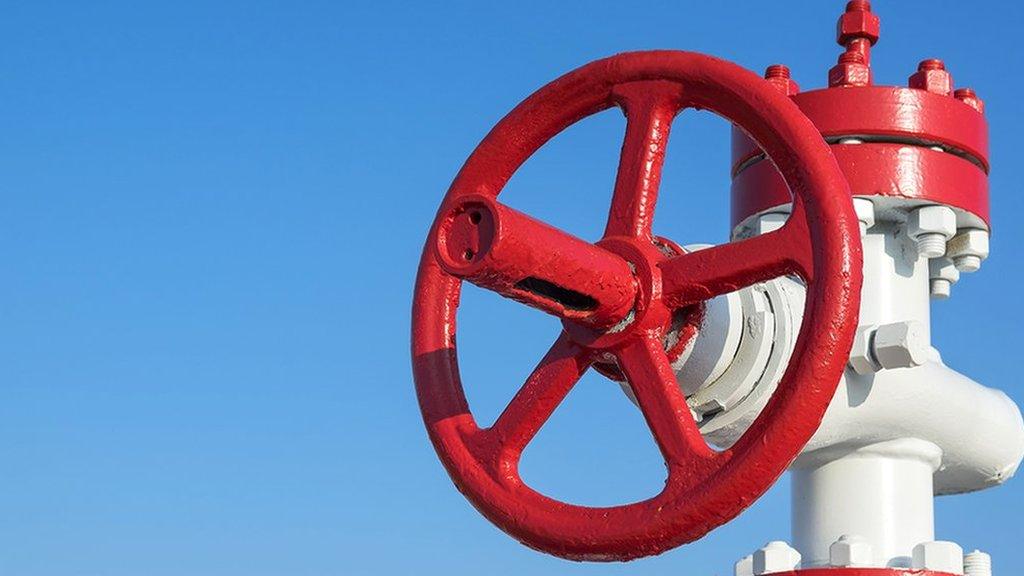How do we replace Russian energy?
- Published
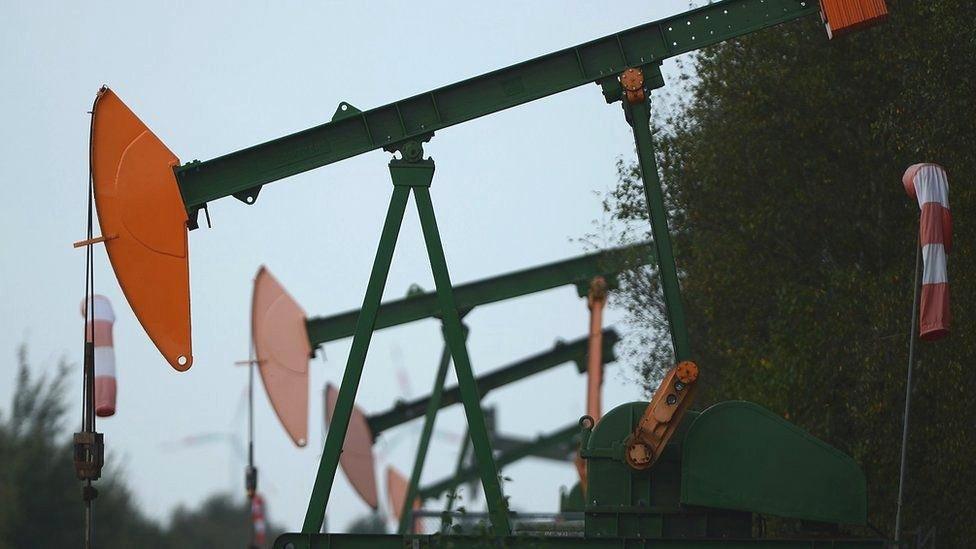
Imposing an embargo on Russian energy brings lower costs for the USA and the UK than it does for Europe, which is why the West's united front looks less united.
Alternative sources of oil and gas raise questions about accelerating exploitation of the UK's potential resources, and show contrasting approaches from Whitehall and Holyrood.
The EU's strategy for reducing its dependence on Russian gas is more detailed, more demanding and more risky.
An embargo on Russian oil is an affordable sacrifice for the US and UK. No more than 8% of this oil comes from Russia. And with more than nine months for the embargo to be introduced, oil supplies can be replaced, at a price - currently a very high price.
Some of that replacement can be from a return to fracking in the USA. With its boom and bust swings, it is responding to higher crude prices, now above $120 and an expectation that they've got further to rise. That's where the UK and Europe can hope to source more tankers filled with Liquified Natural Gas.
As for Britain, it can push on the accelerator for more drilling in the waters off Scotland. After the Glasgow COP26 summit - four very long months ago - the foot was moving onto the brake pedal. Permission to produce from the Cambo field, west of Shetland, became a symbolic battleground.
The Scottish government, after much caution, sided with the environmentalist cause of stopping Cambo. It was a tough choice for the SNP's leadership - ending decades in which oil lubricated the economic case for independence, risking the alienation of voters in north-east Scotland, and provoking the scorn of the breakaway Alba Party.
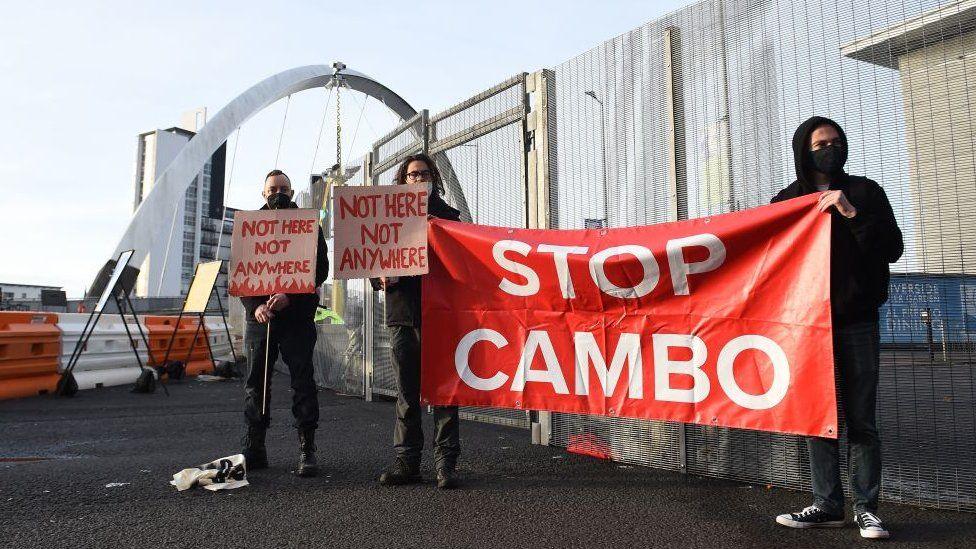
The Scottish government sided with calls to stop Cambo after the COP26 climate summit
But Nicola Sturgeon made that call. And even when Russia has moved energy security to the top of Britain's and Europe's agenda, her ministers are sticking with it.
On Tuesday, cabinet secretary Michael Matheson was challenged at Holyrood by a Tory MSP to join the move towards opening up further opportunities for oil and gas drilling. He declined, instead claiming that renewable energy is "more consistent and stable" than hydrocarbons.
It may be so on price, but not so much when the wind drops. That's when Scotland has to import electricity generated from gas and nuclear.
The energy secretary went further, saying that Scotland relies on Russian oil for only around 2% of its needs.
Yet that's no protection from internationally-set prices. Resources pumped from under Scottish waters are not national but corporate, and the companies that produce them can sell them where they choose.
The national benefits of having oil and gas come from taxing the profits, in avoiding the need to spend foreign exchange on imports, and in high-quality, high-paying jobs.
Cleaner oil and gas

Russian gas flows through pipelines across eastern and central Europe
The UK government is hurriedly putting together a new energy strategy. So far, the signals are for green-lighting decisions that help avoid dependence on imported hydrocarbons.
Cautiously making the case for energy security is Offshore Energy UK, the trade body that recently changed its name from Oil and Gas UK.
That change of name embraces the energy transition, and both reflects and encourages moves by its 400 or so oil and gas firm membership towards renewable energy market opportunities.
On the day the UK and US announced the Russian oil embargo, OEUK published its response to a new 'checkpoint' means of judging whether oil and gas drilling is sufficiently in tune with the UK's net zero commitments. It made no mention of Russia, Ukraine, embargoes or soaring prices.
It did make the case, however, for keeping production going in British waters, to retain jobs and skills, and because - so they tell us - the carbon footprint of producing under UK rules is lower than the less constrained and less regulated methods of producing hydrocarbons in other countries. In other words, cleaner oil and gas.
One degree cooler
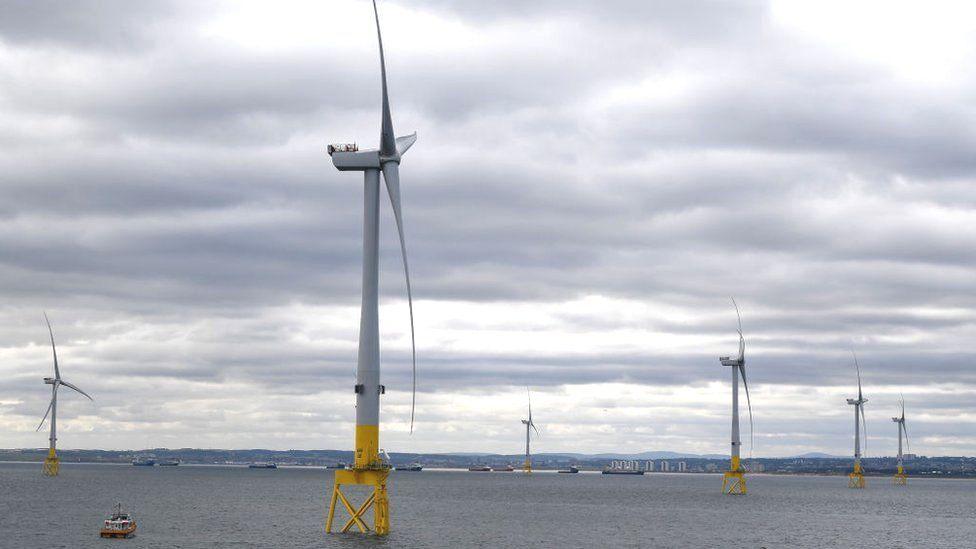
The European Commission wants to quickly expand wind and solar power
There's a big contrast between the UK and US embargo on Russian oil, and Europe's moves towards an embargo on gas. That's much tougher to achieve, and at least some European leaders fear that it's an unaffordable sacrifice, potentially backfiring.
Europe's dependence on Russian energy is far bigger, and it's harder to source alternative sources of gas, when so much of it comes down a pipeline.
The EU plan set out on Tuesday includes a shift towards a vast increase in shipping LNG (liquefied natural gas) from alternative producers of gas.
It sets specific amounts of gas, in the billions of cubic metres, that can be replaced by other measures. Some of the project is to find alternative sources of gas, including production of 10m tonnes of hydrogen by 2030.
That's while looking to reduce the need for gas. Using less of it involves turning down the thermostat by one degree. That alone equals 10 billion cubic metres per year.
The European Commission wants to put booster rockets on the expansion of solar and wind power and heat pumps . It wants to use far more bio-methane.
It's a big gamble, and requires a lot of things to go right. It will mean a very busy supply chain for renewable energy.
And in a bleak outlook for the continent, the economy and for peace, it offers one bright prospect - of accelerating the great energy transition to net zero.
- Published9 March 2022
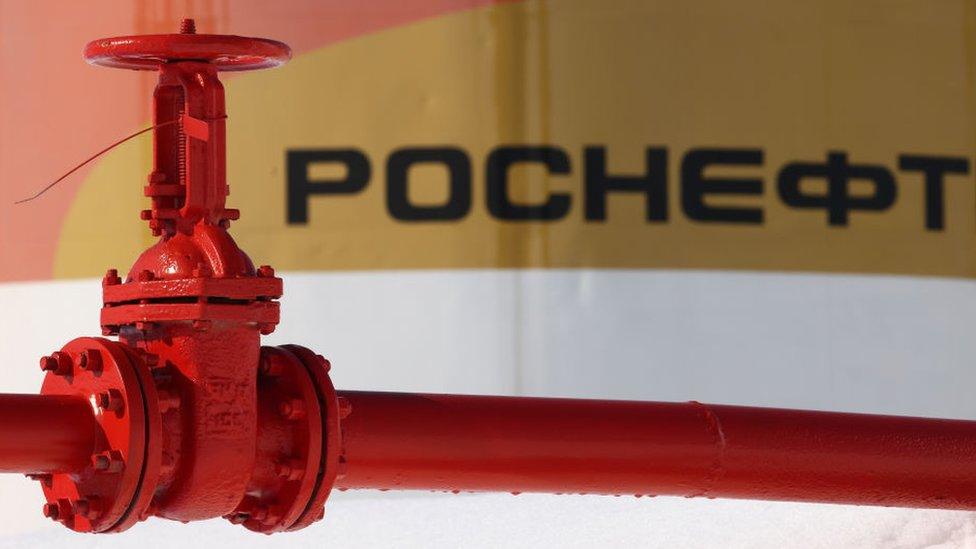
- Published26 January 2023
